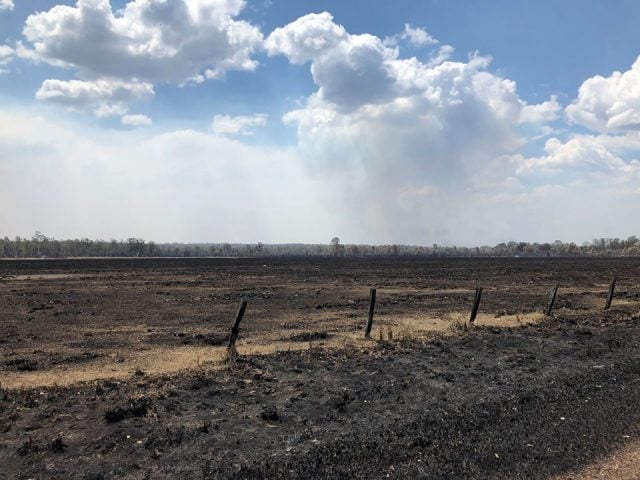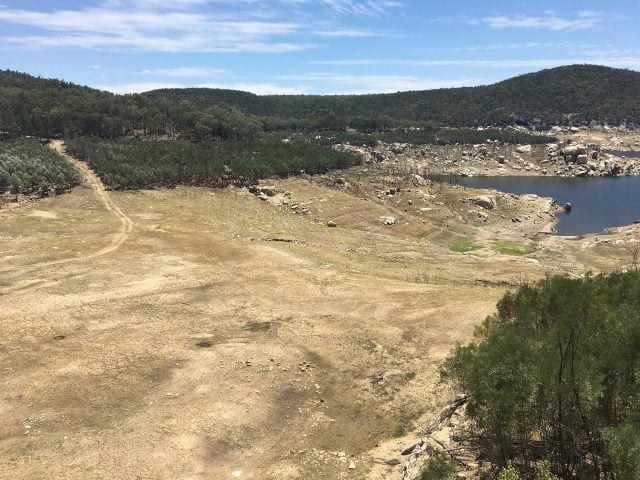
Brought to you by Cosmos Magazine and The Echo
The new State of the Environment report is a hard but necessary read
If the past five years has felt like a series of rolling crises, the State of the Environment report released on 19 July affirms that view in over 200 pages of documented decline in Australia’s climate, ecosystems, and biodiversity.
More than 30 experts contributed to the five-yearly independent report, which was presented to former environment minister Sussan Ley before Christmas 2021, but was not made public until today.
Only six weeks into the portfolio, new environment minister Tanya Plibersek told the National Press Club the report contained “a difficult, confronting and sometimes depressing story” but that Australians deserved to know the “full picture of environmental decline”.
Overall, the report finds Australia’s environment is in a poor and deteriorating state due to the combined pressures of climate change, habitat loss, invasive species, pollution and resource extraction.
Indigenous wellbeing and heritage was assessed as being “very poor” due to barriers preventing First Nations people from being involved in decision making and connecting to Country, and the lack of respect and recognition for Indigenous knowledge – among other factors.
Meanwhile key environmental measures assessed as “poor” extend across climate and extreme events, ecosystems, and biodiversity.

A new chapter on extreme weather was added to the latest report and captures the increasing frequency and intensity of extreme weather events driven by climate change.
The report finds Australia’s climate has warmed on average by 1.4°C on land and 1.1oC in the ocean. Meanwhile along much of the nations coastline, sea levels are rising at rates above the global average 3 to 3.5 millimetres a year, putting low-lying Torres Strait Islands at risk.
Extreme heatwaves and very hot days are increasing, and are “the single biggest climate-related cause of human mortality in Australia”, the report says. In Victoria, there are now 2.6 days reaching 45oC or higher on average each year, compared to 0.3 days in 1961–2000.
As well as being deadly to humans, heat stress kills native animals. It contributed to the mass deaths of flying foxes in Queensland in late 2018, and more than one million fish deaths in the Menindee Lakes in 2018-19.
Fire seasons are longer and the days of high fire danger are increasing, the report says.
The catastrophic 2019-20 Black Summer bushfires loom large over the report. The fires caused the loss of 34 human lives and 2,500 homes along with an estimated 417 additional deaths due to the bushfire smoke.
An estimated 80% of the Australian population was affected by bushfire smoke at some point during the 2019-20 season, with Canberra experiencing the worst outdoor air quality measurements of anywhere in the world.
In the five years since the 2016 State of the Environment report, the number of species listed as threatened has grown by 144 to 1,918.
Ecosystems and biodiversity are under pressure due to the cumulative effects of climate change, land clearing, urban expansion and invasive species. Australia has lost more mammal species than any other continent in modern times and has one of the highest rates of decline among OECD countries.
Those considered to be most at risk of extinction in the coming decades include the central rock rat, northern hopping-mouse, the Carpentarian rock-rat, Christmas Island flying fox and black-footed tree-rat (currently in the running for Mammal of the Year).
Up to 3 billion animals were killed or displaced by the Black Summer bushfires, and the report foreshadows the ongoing fallout is likely to grow the list of threatened species in coming years.
Among those assessed as doing better – in general terms – were human society and wellbeing. And crocodiles, who have managed to expand in numbers, increase their range and move southwards.
It’s grim reading, but the report offers a way forward.
The authors say greater national leadership, coordinated action and investment can turn things around.
Solutions include better resourcing for smart, collaborative conservation management, reducing greenhouse gas pollution and empowering Indigenous communities to play a larger role in data collection and environmental management, drawing on knowledge about caring for Country accumulated over tens of thousands of years.
In her address, Plibersek flagged a number of possible actions such as greater sharing of data and actions to reduce plastic pollution, and says the federal government plans to formally respond to the 2020 review of the Environment Protection and Biodiversity Conservation Act undertaken by Professor Graeme Samuel.
This article was originally published on Cosmos Magazine and was written by Petra Stock. Petra Stock has a degree in environmental engineering and a Masters in Journalism from University of Melbourne. She has previously worked as a climate and energy analyst.





Humans the so called most intelligent of all the species.
We so smart in fact that we continually soil our own nest and then wonder why it all gone so wrong.
And who were these ‘Experts’. This report relied on Aboriginal cultural ‘Experts’.
When the government needs big loans, it needs collateral for the IMF in case we default. Locking up a third of our continents resources? Must be a big loan. Cash splash time.
No scientist gets a grant to say everything is fine. Fear porn gets you a promotion.